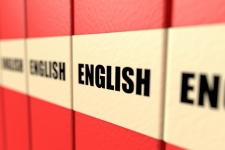Poor English can delay the publication of research. A recent article in New Scientist, a British weekly science magazine, mentions that poor English “is another factor that puts some scientists at a disadvantage. Rudolf Jaenisch at the Massachusetts Institute of Technology, the leading US-based researcher working on iPS cells, argues that some papers from Asia are so badly written that they are difficult to assess."1 The article, titled “Paper trail: Inside the stem cell wars,” explores why research papers from laboratories in the USA are published faster than those from other laboratories in the field of stem cell research.
Poor English includes not only outright errors of spelling, grammar, and punctuation but also faulty construction of sentences, unidiomatic expressions, and odd usage that is obtrusive enough to deflect a reviewer’s attention from the substance of the paper to its style. The fact that the manuscript under review is written by someone to whom English is not the first language is irrelevant to judging the scientific worth of the paper, but it may delay both the review and the subsequent editing of that manuscript. A few errors related to language are minor blemishes in a research paper, and reviewers might not even notice them, but too many errors are bound to reflect adversely on the research paper. In the worst-case scenario, poor English makes it impossible for a reviewer to assess the paper.
Even after a research paper is published, if it is written in poor English, the impact of the paper is reduced because the paper is less likely to be cited because fewer people – especially among those publishing in mainstream English-language journals – are likely to read it.
If English is not your first language, you may resent this unfair advantage held by those to whom English does not present a serious obstacle. Incidentally, do not assume that all native speakers of English can write faultless English: you only have to visit Paul Brian’s website, which confines itself to errors frequently seen in the writing of native speakers of English http://www.wsu.edu/~brians/errors/. After all, how confident are you that whatever you write in your first language will be error-free?
The question is, are you willing to work on your English? To be able to write well in any one language, even when that language in question is your first language, is a skill. And like all skills, it can be mastered with practice combined with adequate instruction. To be able to write in your second language is a skill that needs constant development until you master it. On the other hand, you may conclude that you are better off spending your time on research than on learning English—after all, you can always engage a copyeditor to work on your paper.
1 New Scientist, 9 June 2010 www.newscientist.com/article/mg20627643.700











